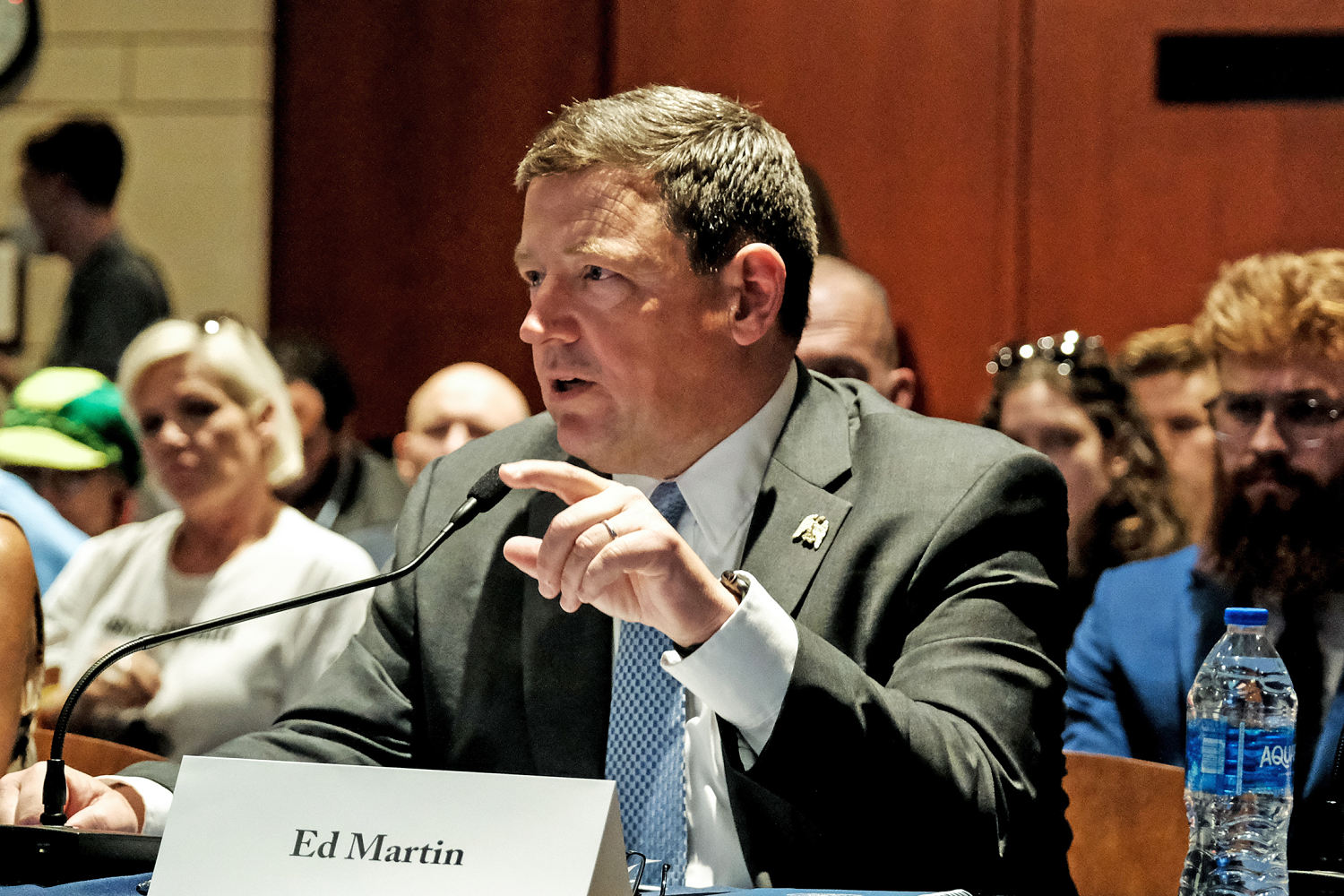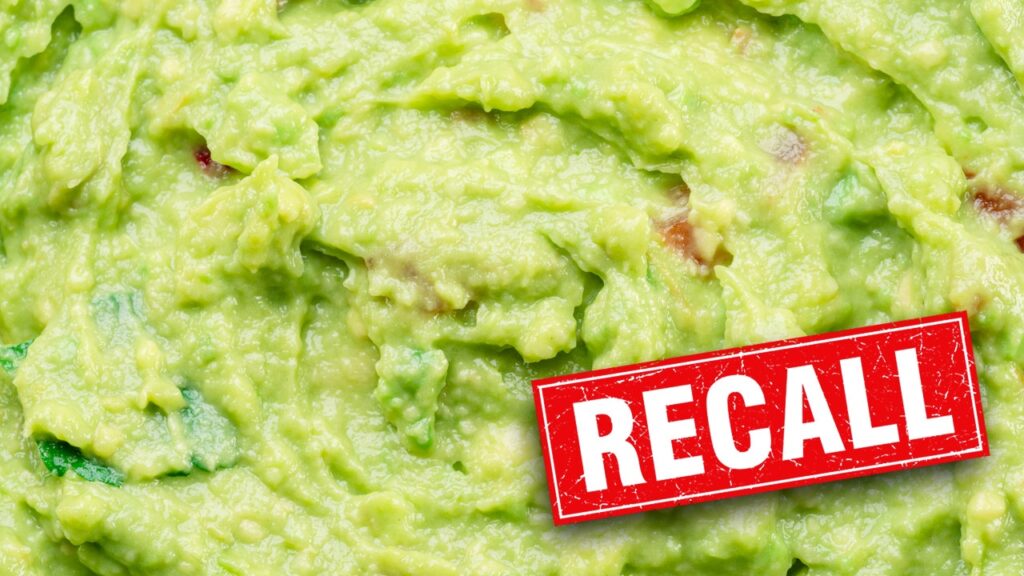
WASHINGTON — A longtime federal prosecutor resigned Tuesday rather than carry out what she described as orders from Trump-appointed officials to take actions unsupported by evidence, according to a copy of her resignation letter obtained by NBC News.
Denise Cheung, who had been at the Justice Department for over 24 years and was the head of the criminal division of the U.S. Attorney’s Office for the District of Columbia, wrote in her resignation letter to interim U.S. Attorney Ed Martin that she had “always sought to offer sound and ethical counsel” to her bosses throughout multiple administrations, and that she had been asked to take investigative and law enforcement actions despite what she called the lack of “sufficient evidence.”
Cheung wrote that she was asked on Monday to review documentation provided by the Office of the Deputy Attorney General (ODAG) — currently headed by acting Deputy Attorney General Emil Bove — “to open a criminal investigation into whether a contract had been unlawfully awarded by an executive agency” during former President Joe Biden’s administration.
Her letter did not specify the grants at issue, but three sources told NBC News it had to do with environmental grants issued during the Biden administration.
A Department of Justice spokesperson said that “refusing a basic request to pause an investigation so officials can examine the potential waste of government funds is not an act of heroism — just a failure to follow chain of command.”
The new resignation comes amid a period of turmoil within the Justice Department. Most recently, seven prosecutors chose to resign rather than follow orders to drop the case against New York City Mayor Eric Adams, a decision that several described in letters as improper and politically motivated. In the D.C. U.S. Attorney’s Office, Martin — who pushed unfounded election conspiracy theories after the 2020 vote and later was an advocate for Jan. 6 defendants — disbanded the unit investigating and prosecuting Capitol rioters and launched a review of their work.
Cheung wrote that she was told the issue “was time sensitive and action had to be taken that day because there was concern that contract awardees could continue to draw down on accounts handled by the bank handling the disbursements.”
Cheung wrote that she conferred with others in the office on Monday, a federal holiday, about whether there was a basis for opening a grand jury investigation. She assessed that “the existing documents on their face did not seem to meet this threshold,” she wrote in her letter. But “an ODAG representative stated that he believed sufficient predication existed” for the investigation, she continued.
Cheung wrote that she was then told that the ODAG representative would work directly with a federal prosecutor and “bypass” the D.C. U.S. Attorney’s Office, before being informed that a “freeze letter” requesting that a bank freeze certain assets “would be adequate at this point, as opposed to other legal process.”
Cheung wrote that she contacted a supervisor in the FBI Washington Field Office, and they and others discussed “what, if any, possible criminal charges might be applicable, as well as the sufficiency of the evidence.”
Cheung wrote that she sent a draft freeze letter provided by the FBI Washington Field Office (WFO) and that ODAG had provided some language suggesting that there was probable cause to seize the assets, but Cheung said that language “was not appropriate” for the matter at hand.
“Despite expressing some concern about the current lack of evidence of any apparent crime and the need to send any such freeze letter, FBI-WFO personnel were able to consult with necessary individuals, including legal counsel, at their office,” Cheung wrote. “I was told that if FBI-WFO was unwilling to send out such a freeze letter, that you would direct someone from the USAO-DC to send out such a correspondence to the bank.”
While the FBI’s Washington Field Office “determined they were willing to send out the freeze letter,” Cheung wrote, the office asked Cheung to send an email stating that there was possible evidence of potential criminal violations. Cheung wrote in an email to the FBI that the most she’d be willing to say was that there “may be conduct that constitutes potential violations” of two laws, conspiracy to defraud the United States and wire fraud, that “merits additional investigation.”
After the FBI field office sent its letter to the bank recommending a 30-day freeze, Cheung wrote that she received a call from Martin and one of his top aides.
“You expressed dissatisfaction about the adequacy of the FBI-WFO letter and criticized that the language merely ‘recommended’ that a freeze of the accounts take place,” Cheung wrote in her letter. “You also directed that a second letter be immediately issued to the bank under your and my name ordering the bank not to release any funds in the subject accounts pursuant to the criminal investigation being run out of USAO-DC. When I explained that the quantum of evidence did not support that action, you stated that you believed there was sufficient evidence.
“You also accused me about wasting five hours of the day ‘doing nothing’ except trying to get what the FBI and I wanted, but not what you wanted,” Cheung continued. “As I shared with you, at this juncture, based upon the evidence I have reviewed, I still do not believe that there is sufficient evidence to issue the letter you described, including sufficient evidence to tell the bank that there is probable cause to seize the particular accounts identified. Because I believed that I lacked the legal authority to issue such a letter, I told you that I would not do so. You then asked for my resignation.”
“I remain committed to the oath that I took, and it has been the honor of a lifetime to be an AUSA in this Office,” Cheung wrote, using an acronym for assistant U.S. attorney. “I know that all of the AUSAs in the Office will continue to uphold that pledge that they have taken, following the facts and the law and complying with their moral, ethical, and legal obligations.”
Trump announced on Monday that he would seek to install Martin as the permanent U.S. attorney for the District of Columbia. Martin, who was still listed as a defense attorney for Jan. 6 defendants until earlier this month, has been acting U.S. attorney for Washington since Inauguration Day, when Trump pardoned convicted rioters, including some of Martin’s clients.
Trump’s announcement came less than 72 hours after Martin announced on X — the platform known as Twitter before it was purchased by billionaire Elon Musk — that he would be investigating former special counsel Jack Smith over pro bono legal help he received from a private law firm.
Martin, in a speech outside the Capitol on the eve of the Jan. 6 attack, called on “die-hard true Americans” to work until their “last breath” to “stop the steal.”
Neither Martin nor the U.S. Attorney’s Office for the District of Columbia immediately responded to a request for comment from NBC News.



